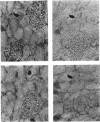Abstract
We have recently reported the induction of systemic lupus erythematosus (SLE) in C3H.SW female mice by their immunization with a human monoclonal anti-DNA antibody that bears a common idiotype termed 16/6 Id. In the present study, the ability to induce experimental SLE in seven inbred mouse strains by immunization with the 16/6 Id was examined. Two out of the seven strains failed to develop the disease. These two strains did not produce antibodies specific to the 16/6 Id, while the other five strains produced high titres of anti-16/6 Id antibodies. The anti-16/6 Id antibody response, followed by the induction of the disease, was not found to be MHC or Ig heavy chain allotype linked. F1 hybrids between a resistant strain and two of the susceptible strains were found to be resistant to the induction of the disease, indicating that susceptibility is inherited as a recessive trait. In the autoimmune NZB/W F1 female mice, immunization with the 16/6 Id resulted in an early onset of the SLE-like disease. The results of the present study indicate the role of the anti-16/6 Id antibodies in the induction of experimental SLE, and provide direct evidence for the importance of the genetic background in determining susceptibility to SLE.
Full text
PDF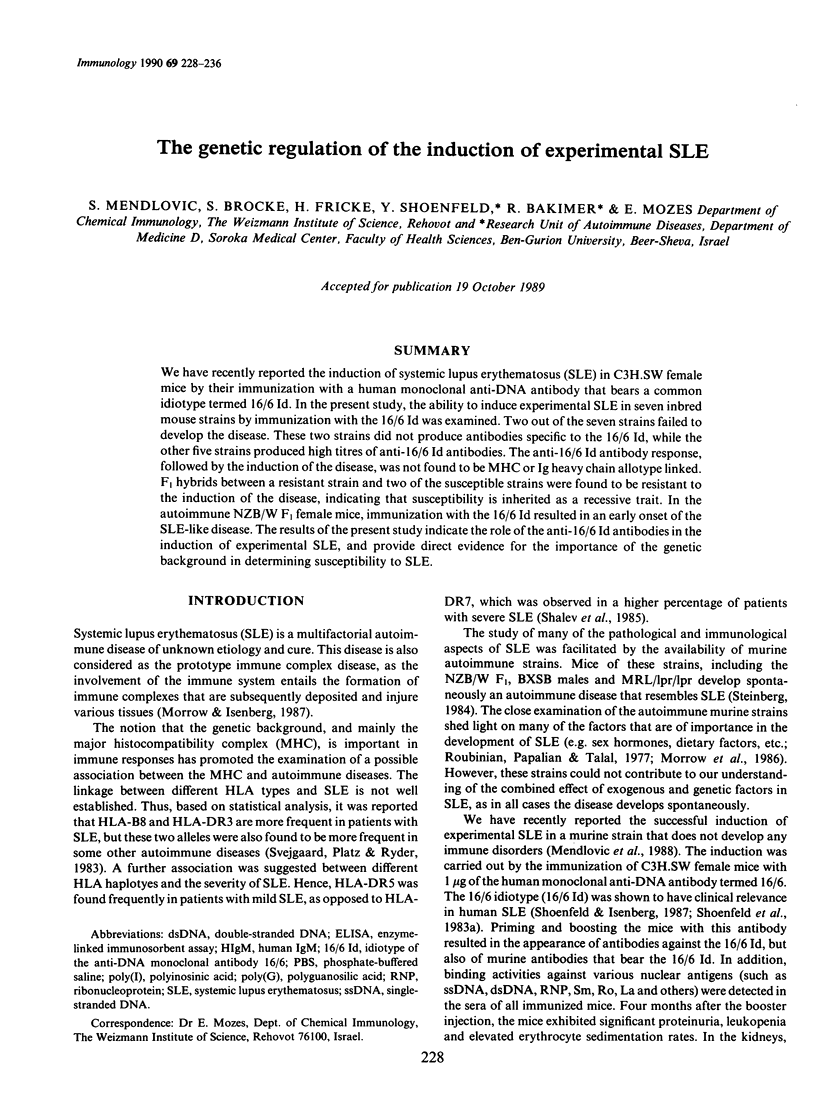
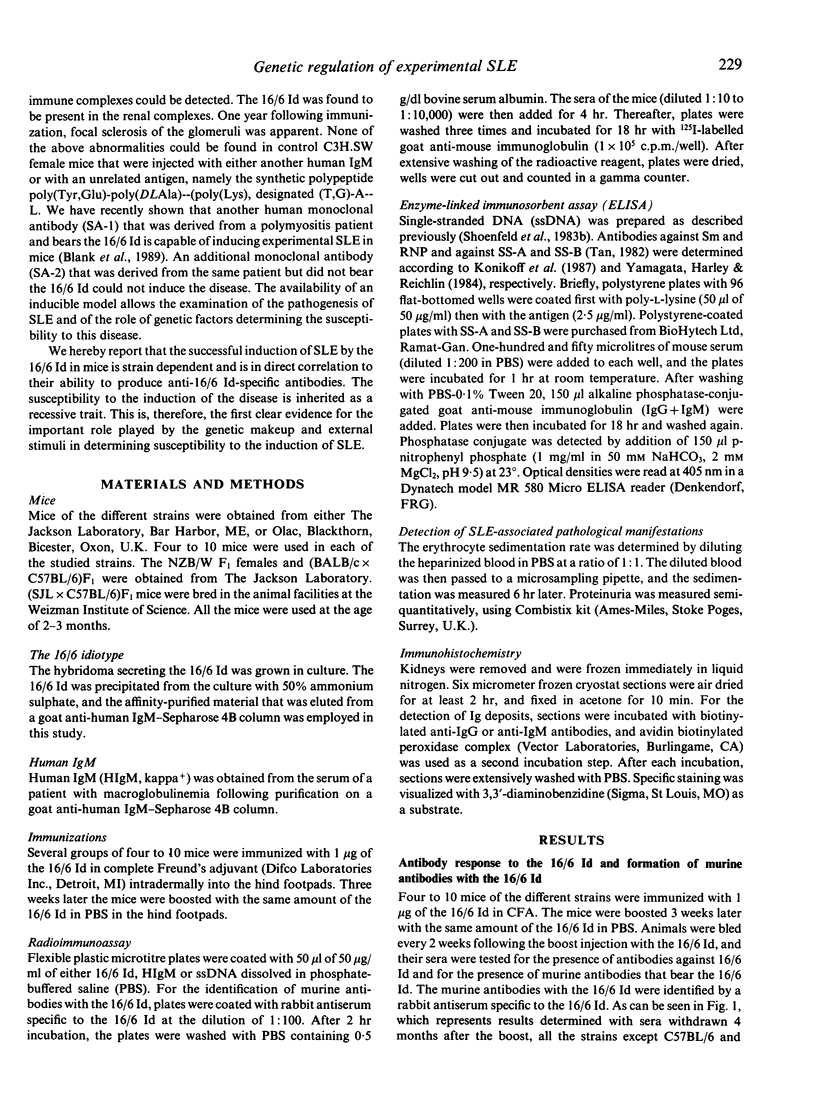
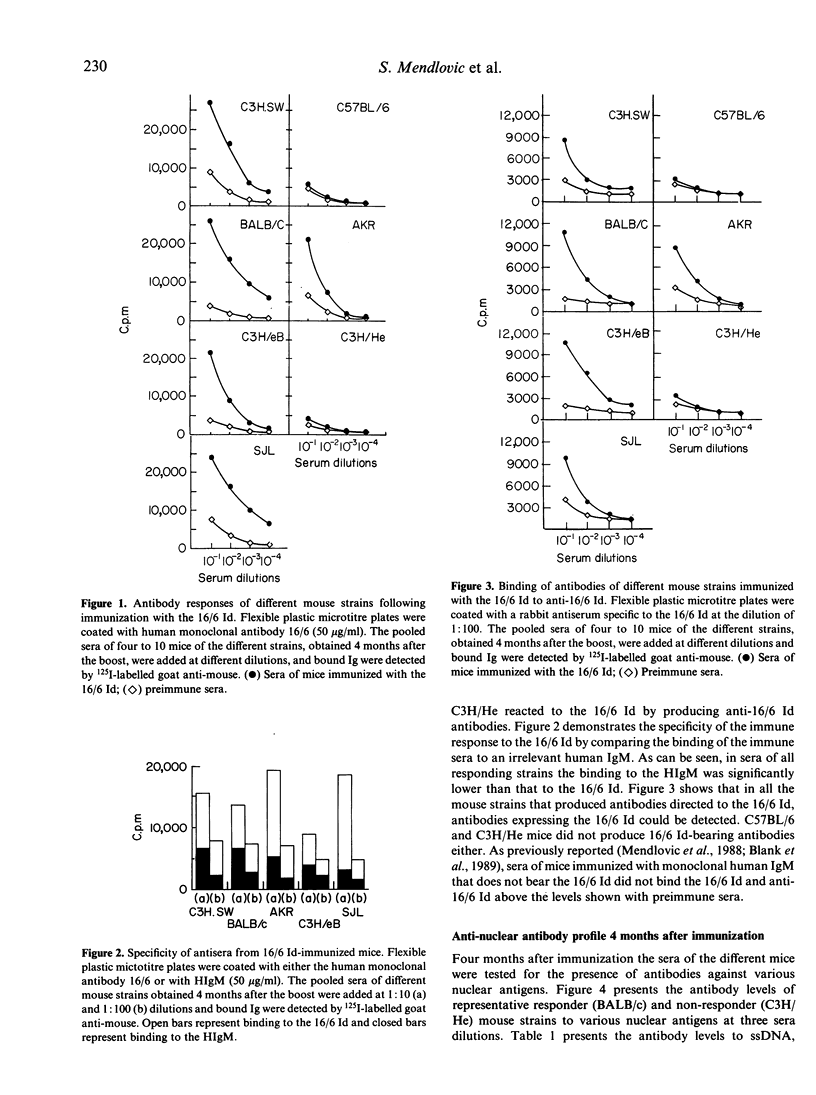
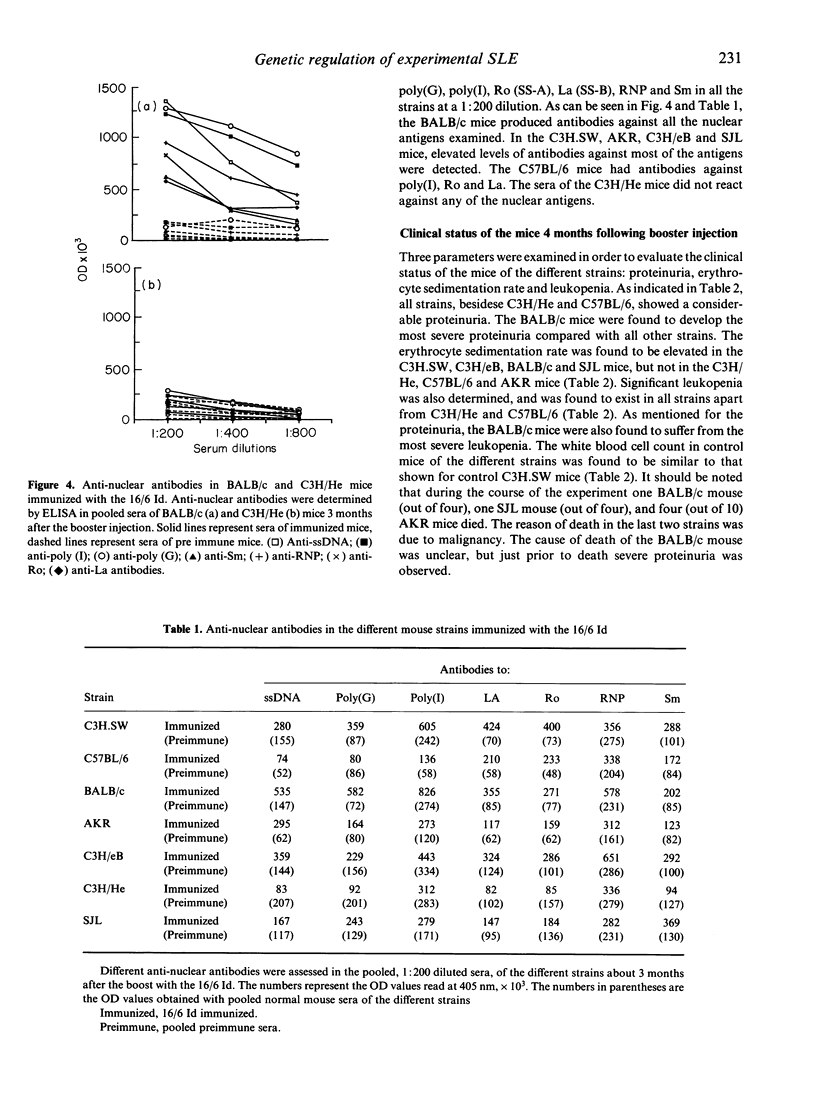
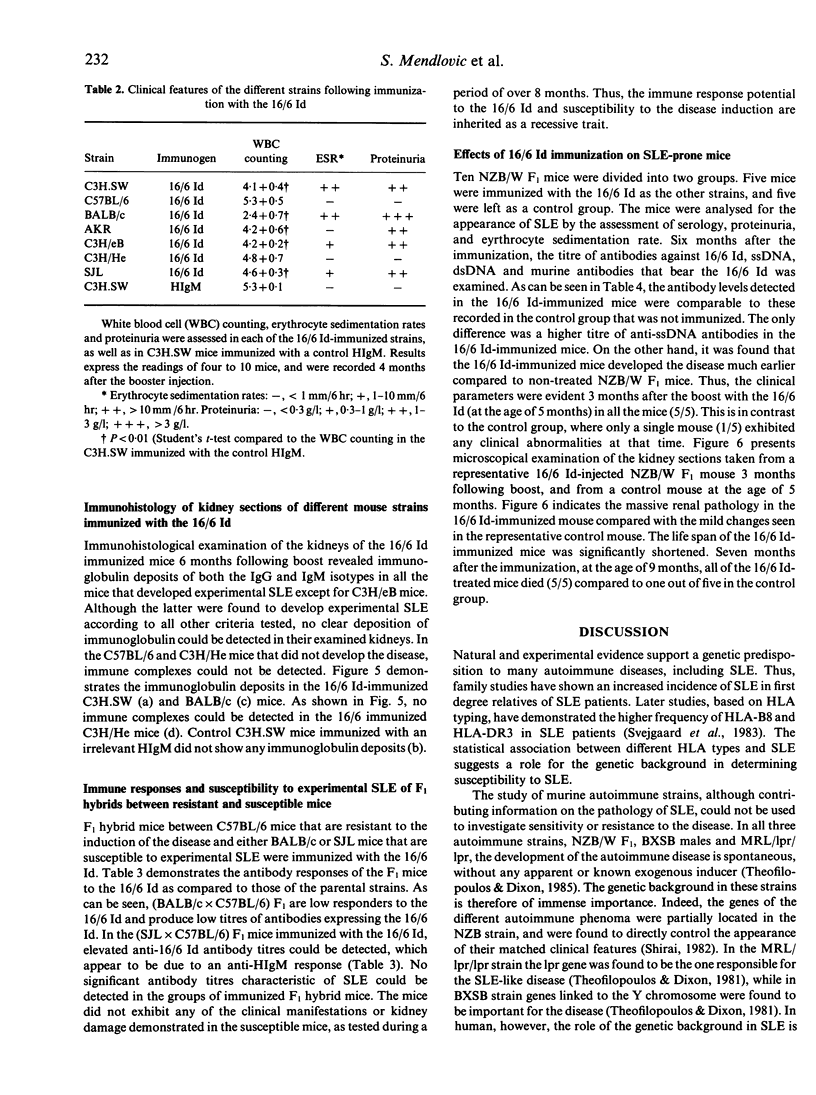
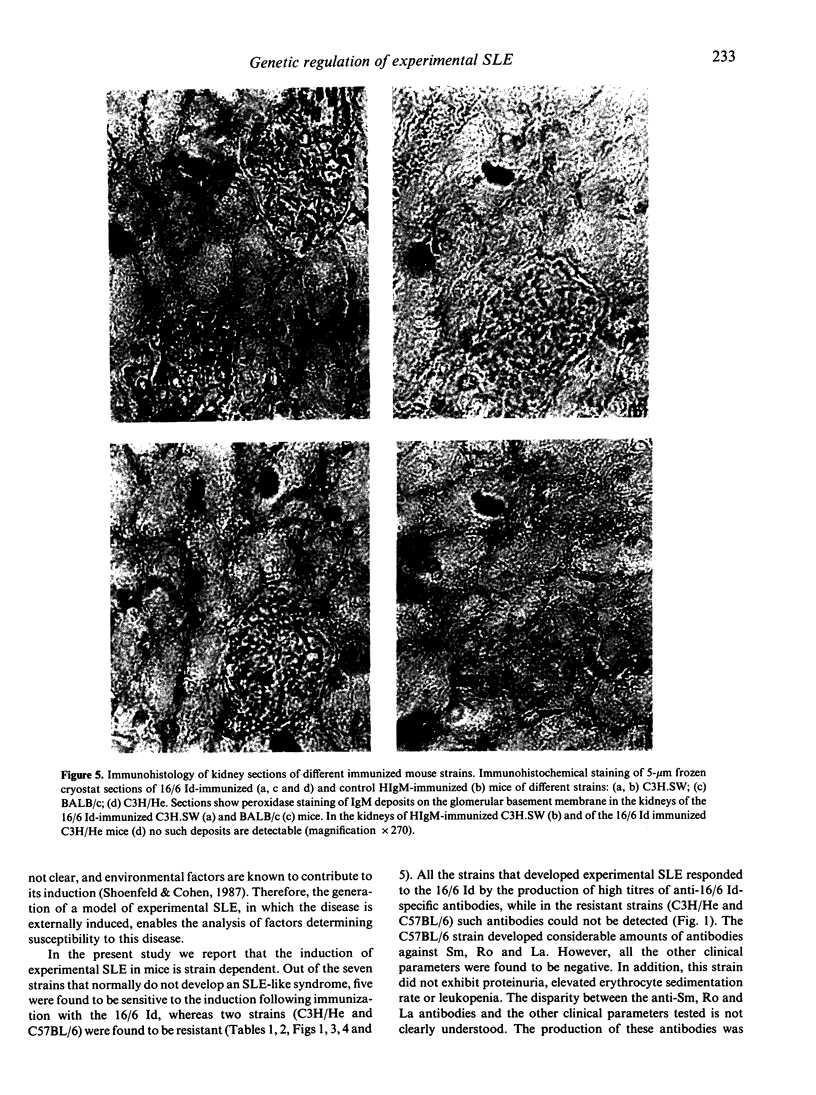
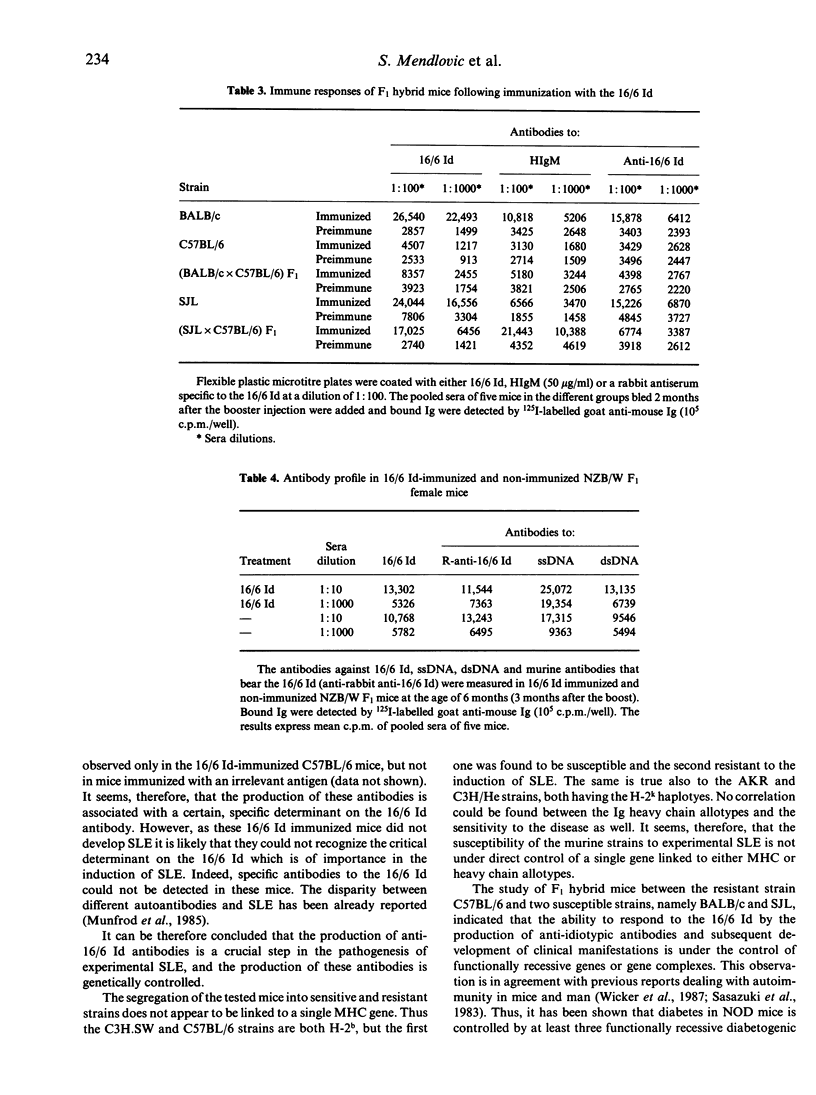
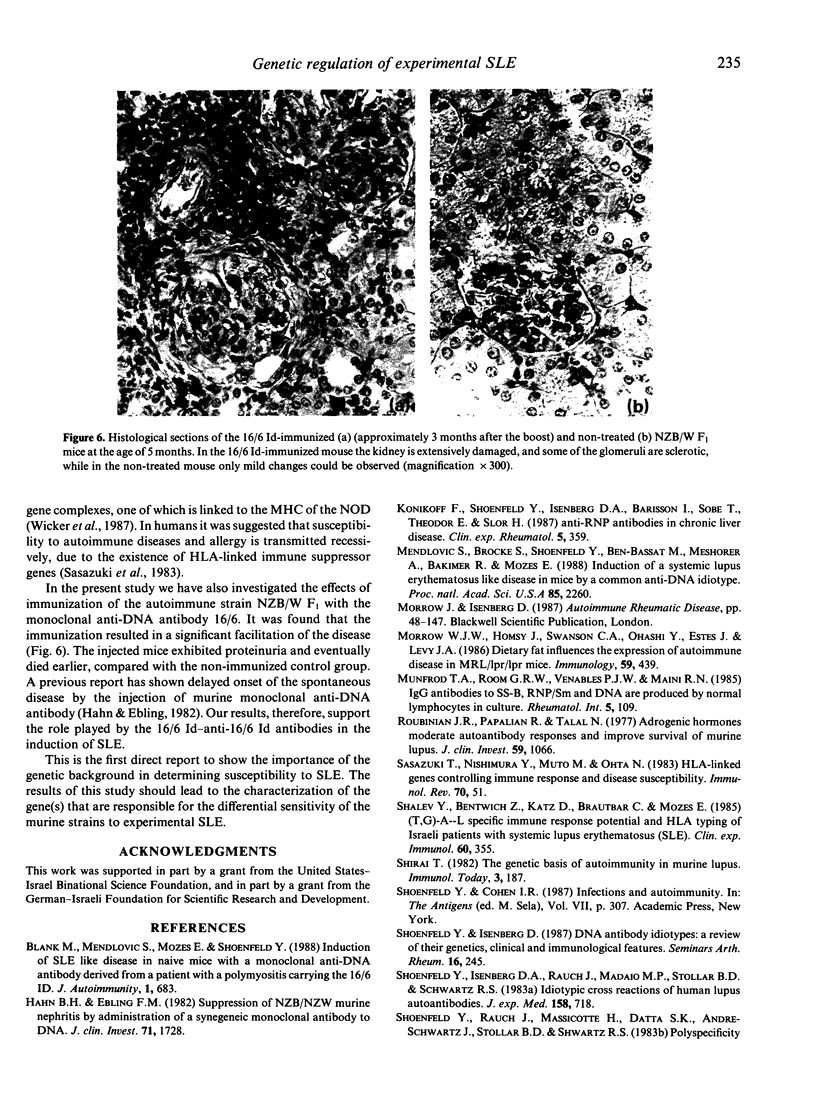
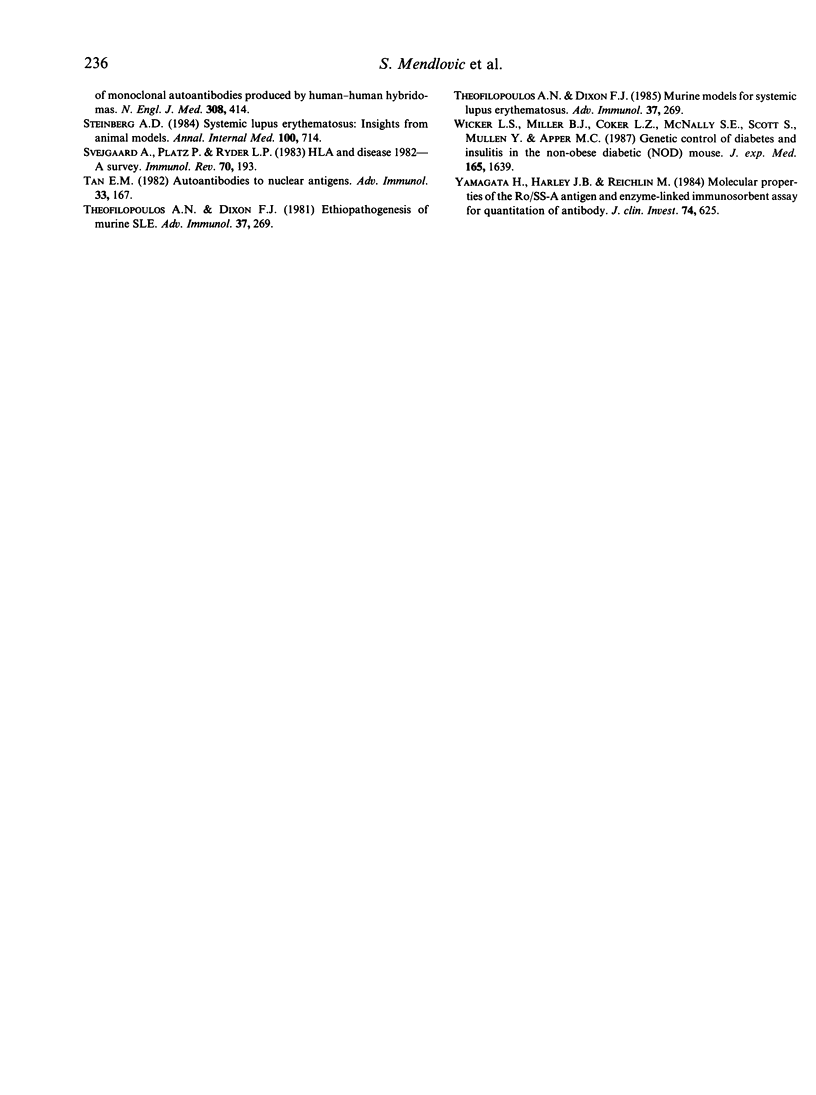
Images in this article
Selected References
These references are in PubMed. This may not be the complete list of references from this article.
- Hahn B. H., Ebling F. M. Suppression of NZB/NZW murine nephritis by administration of a syngeneic monoclonal antibody to DNA. Possible role of anti-idiotypic antibodies. J Clin Invest. 1983 Jun;71(6):1728–1736. doi: 10.1172/JCI110927. [DOI] [PMC free article] [PubMed] [Google Scholar]
- Konikoff F., Shoenfeld Y., Isenberg D. A., Barrison I., Sobe T., Theodor E., Slor H. Anti-Rnp antibodies in chronic liver diseases. Clin Exp Rheumatol. 1987 Oct-Dec;5(4):359–361. [PubMed] [Google Scholar]
- Mendlovic S., Brocke S., Shoenfeld Y., Ben-Bassat M., Meshorer A., Bakimer R., Mozes E. Induction of a systemic lupus erythematosus-like disease in mice by a common human anti-DNA idiotype. Proc Natl Acad Sci U S A. 1988 Apr;85(7):2260–2264. doi: 10.1073/pnas.85.7.2260. [DOI] [PMC free article] [PubMed] [Google Scholar]
- Morrow W. J., Homsy J., Swanson C. A., Ohashi Y., Estes J., Levy J. A. Dietary fat influences the expression of autoimmune disease in MRL/lpr/lpr mice. Immunology. 1986 Nov;59(3):439–443. [PMC free article] [PubMed] [Google Scholar]
- Mumford P., Room G. R., Venables P. J., Maini R. N. IgG antibodies to SS-B (La), RNP/Sm and DNA are produced by PWM-stimulated normal human lymphocytes in culture. Rheumatol Int. 1985;5(3):109–112. doi: 10.1007/BF00541329. [DOI] [PubMed] [Google Scholar]
- Roubinian J. R., Papoian R., Talal N. Androgenic hormones modulate autoantibody responses and improve survival in murine lupus. J Clin Invest. 1977 Jun;59(6):1066–1070. doi: 10.1172/JCI108729. [DOI] [PMC free article] [PubMed] [Google Scholar]
- Sasazuki T., Nishimura Y., Muto M., Ohta N. HLA-linked genes controlling immune response and disease susceptibility. Immunol Rev. 1983;70:51–75. doi: 10.1111/j.1600-065x.1983.tb00709.x. [DOI] [PubMed] [Google Scholar]
- Shalev Y., Bentwich Z., Katz D., Brautbar C., Mozes E. (T,G)-A-L specific immune response potential and HLA typing of Israeli patients with systemic lupus erythematosus. Clin Exp Immunol. 1985 May;60(2):355–362. [PMC free article] [PubMed] [Google Scholar]
- Shoenfeld Y., Isenberg D. A., Rauch J., Madaio M. P., Stollar B. D., Schwartz R. S. Idiotypic cross-reactions of monoclonal human lupus autoantibodies. J Exp Med. 1983 Sep 1;158(3):718–730. doi: 10.1084/jem.158.3.718. [DOI] [PMC free article] [PubMed] [Google Scholar]
- Shoenfeld Y., Isenberg D. DNA antibody idiotypes: a review of their genetic, clinical, and immunopathologic features. Semin Arthritis Rheum. 1987 May;16(4):245–252. doi: 10.1016/0049-0172(87)90002-3. [DOI] [PubMed] [Google Scholar]
- Shoenfeld Y., Rauch J., Massicotte H., Datta S. K., André-Schwartz J., Stollar B. D., Schwartz R. S. Polyspecificity of monoclonal lupus autoantibodies produced by human-human hybridomas. N Engl J Med. 1983 Feb 24;308(8):414–420. doi: 10.1056/NEJM198302243080802. [DOI] [PubMed] [Google Scholar]
- Svejgaard A., Platz P., Ryder L. P. HLA and disease 1982--a survey. Immunol Rev. 1983;70:193–218. doi: 10.1111/j.1600-065x.1983.tb00715.x. [DOI] [PubMed] [Google Scholar]
- Tan E. M. Autoantibodies to nuclear antigens (ANA): their immunobiology and medicine. Adv Immunol. 1982;33:167–240. doi: 10.1016/s0065-2776(08)60836-6. [DOI] [PubMed] [Google Scholar]
- Theofilopoulos A. N., Dixon F. J. Murine models of systemic lupus erythematosus. Adv Immunol. 1985;37:269–390. doi: 10.1016/s0065-2776(08)60342-9. [DOI] [PubMed] [Google Scholar]
- Wicker L. S., Miller B. J., Coker L. Z., McNally S. E., Scott S., Mullen Y., Appel M. C. Genetic control of diabetes and insulitis in the nonobese diabetic (NOD) mouse. J Exp Med. 1987 Jun 1;165(6):1639–1654. doi: 10.1084/jem.165.6.1639. [DOI] [PMC free article] [PubMed] [Google Scholar]
- Yamagata H., Harley J. B., Reichlin M. Molecular properties of the Ro/SSA antigen and enzyme-linked immunosorbent assay for quantitation of antibody. J Clin Invest. 1984 Aug;74(2):625–633. doi: 10.1172/JCI111460. [DOI] [PMC free article] [PubMed] [Google Scholar]



